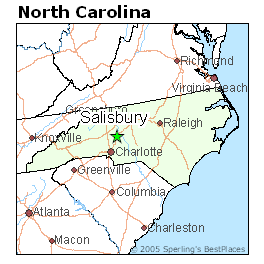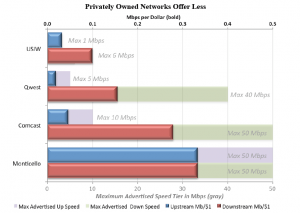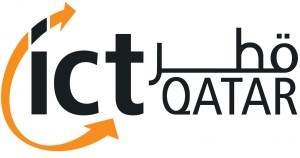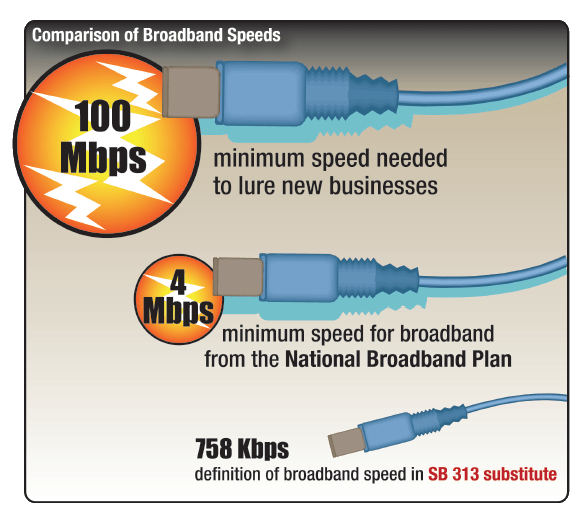 Fibrant, a community-owned fiber-to-the-home provider in Salisbury, N.C., has discovered the importance of redundancy. A major service outage knocked out phone and broadband service for several hours Monday, due to a fiber cut between Concord and Salisbury. Fibrant’s provider, DukeNet, restored service after four and half hours by rerouting around the cable cut, but the incident left Fibrant looking for a backup provider to reduce the chance such a service outage will occur again.
Fibrant, a community-owned fiber-to-the-home provider in Salisbury, N.C., has discovered the importance of redundancy. A major service outage knocked out phone and broadband service for several hours Monday, due to a fiber cut between Concord and Salisbury. Fibrant’s provider, DukeNet, restored service after four and half hours by rerouting around the cable cut, but the incident left Fibrant looking for a backup provider to reduce the chance such a service outage will occur again.
City Manager Doug Paris, who was instrumental in getting Fibrant up and running in Salisbury, said the incident underlined the need to have redundancy to keep customers online. While the city asks DukeNet for an explanation of the most recent service outage, Salisbury is taking bids for backup service.
Redundancy is a lesson virtually every service provider learns — commercial or otherwise. What company has not suffered a significant service outage from an errant backhoe or construction crew severing a vital fiber link? Without a backup provider, service fails and customers howl. Those companies experiencing multiple outages soon learn having a second provider can keep service disruptions to a minimum and more importantly make them invisible to customers.
Paris told the Salisbury Post the city’s intent to contract with a second supplier has its benefits. A large educational institution has now signed up for service, with several potential new business customers considering Fibrant as well.
Fibrant has won a 13% market share in Salisbury, supplying phone, Internet, and cable TV to more than 1,700 customers. Fibrant offers the fastest broadband service in the city and competes primarily with Time Warner Cable. It also faces perennial opposition from anti “government broadband” critics, many nipping at the provider for political reasons.
Opponent John Bare has compared Fibrant to welfare, opposing it because it is not operated by the private sector.
But Fibrant has kept its competitors on their toes, forcing both the local cable and phone company to offer cut-rate deals for new customers and those threatening to switch. Those low prices and retention deals have cut into Fibrant’s projected share of business in the community, but city officials note the customers who do sign up stay with the provider. Fibrant has a 99% customer retention rate.
Fibrant’s biggest challenge remains its start up costs and debt. The provider spends nearly $1,350 for each residential installation, for which it charges customers nothing unless they depart within a year of signing up. Fibrant recoups installation and network construction costs from customers over time. But the company does have plans to more aggressively market its service to Salisbury’s 34,000 residents in light of competitive offers from cable and phone companies. Fibrant manages to win around 30 new customers a week.
Salisbury’s fiber network does not pitch customers “teaser rates” that rise considerably after the promotion expires. It prefers to market its superior speeds and service, and notes all of the revenue earned by Fibrant stays in the local community instead of being pocketed by Wall Street banks and investors.


 Subscribe
Subscribe













